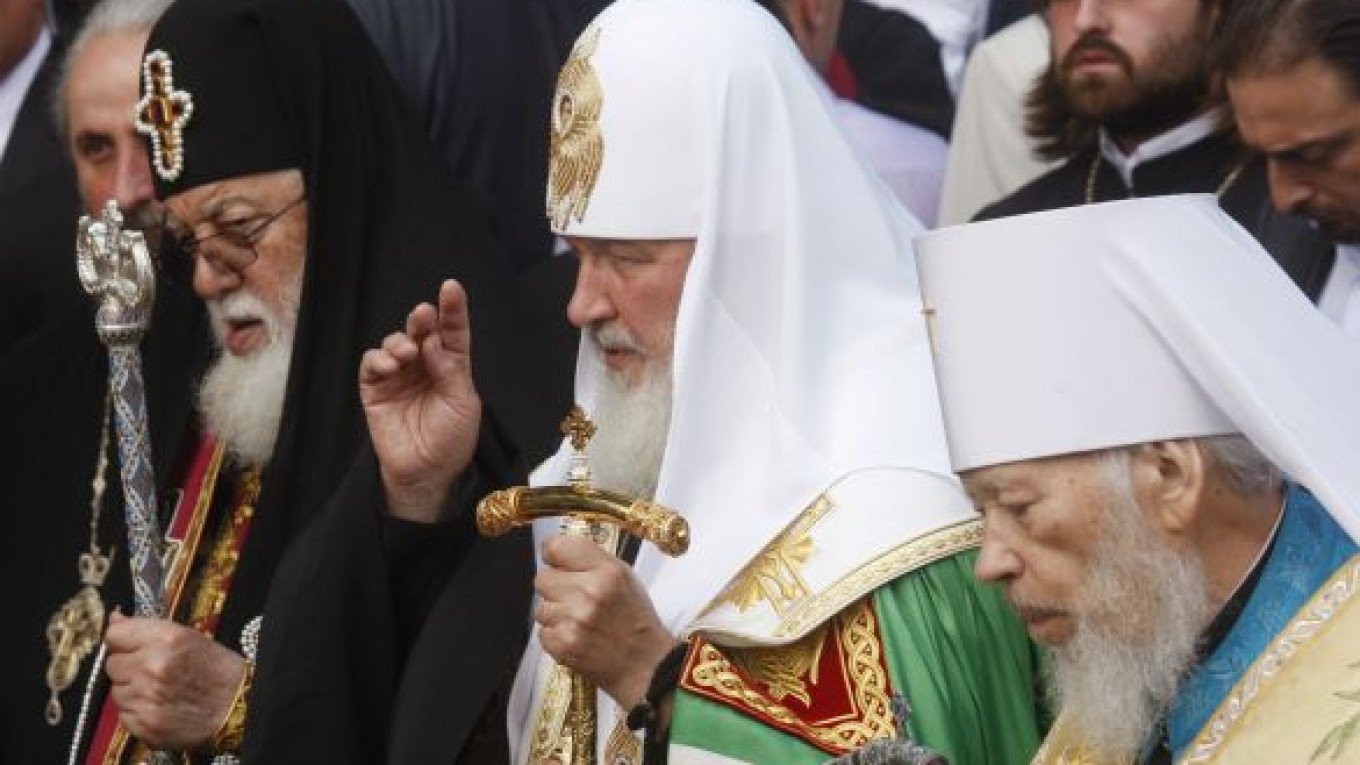KIEV — The Russian Orthodox Church will not claim clerical authority over Georgia's breakaway regions of Abkhazia and South Ossetia, Russian and Georgian church leaders said.
Russian Orthodox Patriarch Kirill and Georgian Orthodox Patriarch Ilia met in Ukraine for the first time since the five-day war in 2008 over the Moscow-backed breakaway region of South Ossetia.
Patriarch Kirill said he had a "brotherly" discussion with his Georgian peer on issues that included church life in the rebel regions.
"It is clear that the Georgian Patriarchate has canonical jurisdiction over the territory of Abkhazia and South Ossetia," he told reporters Tuesday.
Patriarch Ilia called the meeting "a good start" and said he hoped to continue talks with the Russian church.
None of the clerics spoke about the political side of the Abkhazia and South Ossetia issue.
Tensions between Georgia and Russia have remained high since the 2008 war, which strengthened Russia's influence over the two rebel regions.
The Georgian church's pro-Russia stance has created tensions between it and President Mikheil Saakashvili's pro-Western government.
Adding to Georgia's frustrations, the Russian government has recognized both regions as independent countries. Moscow and Tbilisi have since traded multiple accusations of "provocations" and sabotage.
This month, a Georgian court found several photographers, including one who had worked for Saakashvili, guilty of spying for Russia.
A Message from The Moscow Times:
Dear readers,
We are facing unprecedented challenges. Russia's Prosecutor General's Office has designated The Moscow Times as an "undesirable" organization, criminalizing our work and putting our staff at risk of prosecution. This follows our earlier unjust labeling as a "foreign agent."
These actions are direct attempts to silence independent journalism in Russia. The authorities claim our work "discredits the decisions of the Russian leadership." We see things differently: we strive to provide accurate, unbiased reporting on Russia.
We, the journalists of The Moscow Times, refuse to be silenced. But to continue our work, we need your help.
Your support, no matter how small, makes a world of difference. If you can, please support us monthly starting from just $2. It's quick to set up, and every contribution makes a significant impact.
By supporting The Moscow Times, you're defending open, independent journalism in the face of repression. Thank you for standing with us.
Remind me later.






